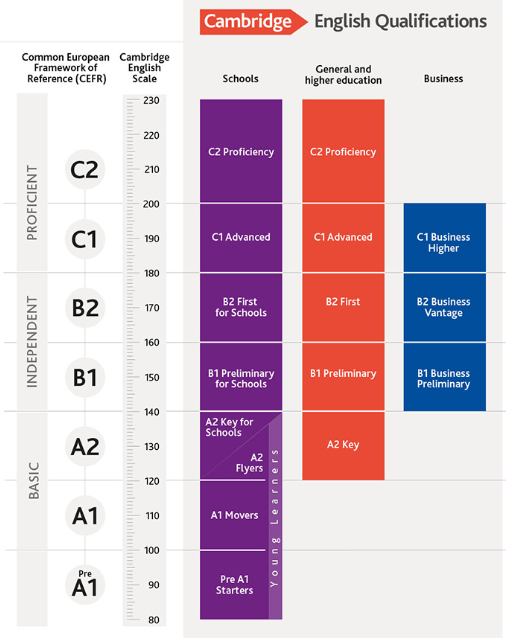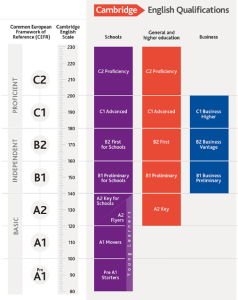Special consumption tax is a common tax in our country regulated by the State to guide production and consumption. So what is special consumption tax? Who is subject to special consumption tax?

What is special consumption tax?
Special consumption tax is a tax collected on organizations and individuals that produce and import goods and provide services that are necessary for the State to regulate consumption. Special consumption tax is an indirect tax and the tax rate is often very high, so it has the ability to affect the use of income for consumption by the population.
Historical development of special consumption tax
Before the 1990 tax reform, in Vietnam special consumption tax (called goods tax) only applied to collective and individual economic sectors.
Goods and services that require consumption regulation depend on the State’s consumption policies and production and business encouragement policies. Goods and services necessary to regulate consumption are regulated by the State in the list of goods and services subject to special consumption tax and may change from time to time, for example: According to the provisions of the Consumption Tax Law. Especially in 1990, items subject to special consumption tax included: cigarettes, wine, beer, firecrackers, playing cards, and votive papers. According to the provisions of the Law on Special Consumption Tax passed on May 20, 1998, goods and services subject to special consumption tax include: cigarettes of all types, alcohol, beer, cars of all types under 24 seats, gasoline types, naphtha (napphiha), recombination preparations and other preparations for mixing gasoline, air conditioners with a capacity of 90,000 BTU or less, playing cards, votive papers, votive goods, business services, dance halls , Massage, karaoke, casino business, jackpot games; Horse racing and car racing betting ticket business, golf business. According to the Law amending and supplementing a number of articles of the Law on Special Consumption Tax promulgated in 2003, the list subject to special consumption tax is supplemented with lottery business activities.
The basis for calculating special consumption tax is the taxable price and tax rate. The State collects special consumption tax based on a percentage (%) calculated on the taxable value of taxable goods and services.
Historically, special consumption tax appeared very early. Since the time of ancient Greece and Rome, taxes on the consumption of goods such as taxes on imported goods (import duties) and special consumption taxes have been applied. However, in terms of generating income for the state at that time, special consumption tax did not play as important a role as import tax.
View more:
- WHAT IS TAX REPORTING? STEPS TO MAKE TAX REPORTS FOR BUSINESSES
- What is Business Insurance? Why Do Businesses Need To Have One?
Over time, the role of special consumption tax is increasingly considered. Countries have viewed this tax as a necessary tool to create and increase revenue for the state budget. In America, three years after the US Congress was given the right to collect taxes from American citizens, in 1792, the first tax issued was a special consumption tax, levied on whiskey. In Australia, to increase revenue for the state budget, in 1824, the New South Wales government established two taxes: import tax and special consumption tax, both levied on the following items: alcohol, beer, and cigarettes. yarn, cigars and cigarettes. These were the two taxes that provided the most important sources of revenue for the colonial government during the 19th century.
In Vietnam, special consumption tax has been applied since 1990. Before 1990, in Vietnam, taxes on non-essential goods were called goods taxes specified in the Goods Tax Charter, issued together with Resolution No. 487-NQ/QHK4 dated September 26, 1974. Taxable goods are goods produced by the non-state economic sector and some goods imported by person or in the form of gifts or donations. Compared to the subjects subject to special consumption tax under the 1990 Special Consumption Tax Law and the current Special Consumption Tax Law, the subjects subject to goods tax under the Goods Tax Regulations are much broader (see List of goods). subject to tax in the goods tax schedule issued together with Resolution No. 487-NQ/QHK4).. This first law on special consumption tax is levied on six domestically produced goods: tobacco, alcohol, and beer. , firecrackers, playing cards and votive papers. The Law amending and supplementing the Law on Special Consumption Tax in 1993 narrowed the scope of goods subject to special consumption tax to four types of taxable goods: cigarettes, alcohol, beer and firecrackers.
The amendment and supplementation of the Special Consumption Tax Law in 1995 marked a development step in the process of perfecting the special consumption tax law, reflected in the fact that this law expanded the scope of goods subject to consumption tax. excise duty and tax not only on domestically produced goods but also on imported goods. Specifically, according to the Law amending and supplementing a number of articles of the Special Consumption Tax Law in 1995, taxable items include: cigarettes, alcohol, beer, firecrackers, gasoline and imported cars with 24 seats or more. down. Gasoline and imported cars with up to 24 seats are new items included in the list of items subject to special consumption tax. The above mentioned special consumption tax on imported cars partly reflects the Vietnamese Government’s policy of protecting the domestic automobile manufacturing industry during this period.
To implement the Resolution of the 4th Conference of the 8th Party Central Committee on expanding the scope of special consumption tax or increasing tax rates for goods that need to be limited in consumption, and at the same time to coordinate contracts. Ministry with the Value Added Tax Law taking effect from January 1, 1999, on May 20, 1998, the National Assembly passed the new Special Consumption Tax Law replacing the 1990 Special Consumption Tax Law. and the Law amending and supplementing a number of articles of the 1993 and 1995 Law on Special Consumption Tax.
The 1998 Special Consumption Tax Law was built on the basis of considering objective factors that can affect domestic production costs and total state budget revenue. Two factors that have a great impact on the main changes of the Special Consumption Tax Law in 1998 are the introduction of the Value Added Tax Law into practice and the fact that Vietnam participates in the process of international integration. international.
First, starting from January 1, 1999, value added tax took effect to replace sales tax, leading to increased costs for raw materials to produce items subject to special consumption tax. That is explained by the fact that the input value-added tax on raw materials used to produce goods subject to special consumption tax is larger than the sales tax payable under the previous Sales Tax Law. Therefore, it is necessary to reduce the special consumption tax rate so as not to greatly affect the price of taxable goods.
Second, during the process of international integration, Vietnam will have to cut import taxes on some products, thereby reducing state budget revenue from import taxes. To ensure that total state budget revenue is not affected, it is necessary to reclaim the revenue that could have been raised from import taxes if the Law on Import and Export Taxes had not been amended. Expanding the range of goods and services subject to special consumption tax is a feasible solution and lawmakers have chosen this option.
What is the nature of special consumption tax?
Special consumption tax is an indirect tax levied on a number of special goods produced and consumed by businesses. This tax is paid by the establishments that directly produce the goods, but the consumer is the one who bears the tax because the tax is added to the selling price.
According to Article 2 of the 2008 Special Consumption Tax Law, amended in 2014, the subjects subject to special consumption tax are defined as follows:
“first. Goods:
a) Cigarettes, cigars and other products from tobacco plants used for smoking, snorting, chewing, sniffing and sucking;
b) Alcohol;
c) Beer;
d) Cars with less than 24 seats, including passenger and cargo cars with two or more rows of seats, with a fixed partition design between the passenger compartment and the cargo compartment;
d) Two-wheeled motorbikes and three-wheeled motorbikes with cylinder capacity over 125cm3;
e) Airplanes and yachts;
g) Gasoline of all kinds;
h) Air conditioner capacity of 90,000 BTU or less;
i) Cards;
k) Votive paper and votive goods.
Service:
a) Dance hall business;
b) Massage and karaoke business;
c) Casino business; electronic games with prizes include games with jackpot machines, slot machines and similar machines;
d) Betting business;
d) Golf business includes selling membership cards and golf tickets;
e) Lottery business.”
Explain the reasons for special consumption tax?
Like the question you asked, the government taxes very high taxes on items such as phones, televisions, cars or high-tech equipment and you asked, “If you want to develop quickly, you don’t have to equip a lot of those things.” Star?”. In fact, the taxation of special consumption tax on goods is as follows: Article 2 of the 2008 Special Consumption Tax Law, amended in 2014, which includes the items you mentioned, to explain this high assessment can be for the following reasons:
– The state regulates consumers’ income into the budget in a fair and reasonable manner: those who consume a lot of goods and services subject to special consumption tax pay more tax than consumers who pay little or no money. tax if those goods and services are not consumed. Although the goods you offer are modern goods that also mark the development of the country’s economy, they have many components that make the product toxic and very difficult to decompose after use. Thus, products containing those harmful substances will incur high fees.
– The State performs the function of guiding and regulating the production, business, promotion and consumption of a number of luxury goods and services that are not really necessary for social needs, demonstrating the increase in demand. Strengthen centralized and strict state management and control of these types of goods and services.
Therefore, goods such as high-end cars and motorbikes are also subject to special consumption tax, which can be explained in another way: these goods are classified as luxury goods and are not really necessary. When used in Vietnam and the traffic situation has not yet developed adequately to meet this demand, it is necessary to limit its use to avoid the consequences of using this vehicle too much. leading to traffic jams.
– The State collects high special consumption tax on the goods you mentioned for the purpose of ensuring State Budget revenue.
Link: https://newslax.com/







Leave a Comment